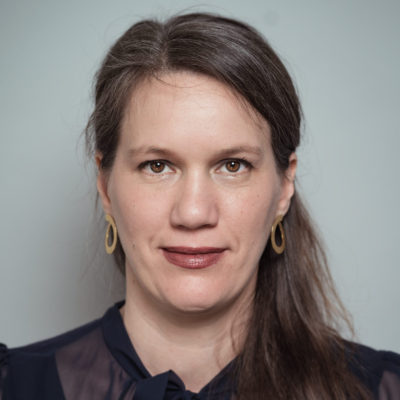We are the victims and survivors, not just the ‘parties to the procedure’; we are primarily human beings.
Jana Voždová, mother of a son who died in a car crash
Primarily, the criminal proceedings currently focus on punishing the perpetrator – and less on reforming him, while failing at meeting the needs of the victims. The existing system does not reflect the needs of those involved in the criminal proceedings, other people affected by the crime and the society as a whole. It does not address the consequences of the crime or its causes.
That is why in 2019 we founded the Institute for Restorative Justice where we strive to meet the needs of victims, take an active stance on accountability of the offender, to create a safe space for dialogue and to involve all those whose lives had been affected by the crime. The principles of respect, reintegration and dialogue are an essential part of our understanding of justice.
Asking for forgiveness is to accept responsibility.
perpetrator of a serious offence
How we develop restorative justice in the Czech Republic:
We build our activities on three pillars:
Systemic change
- While working on our project Restorative Justice: Strategies for Change, we created, based on a two-year dialogue with criminal justice experts, the Strategy of Restorative Justice for the CR and presented it at an online conference Česko restorativně 2021 (Restoratively in the Czech Republic, 2021). We are happy that restorative justice has been mentioned in the programme statement of the new government: “We shall start to promote the restorative justice concept more, following the Strategy of Restorative Justice for the CR.”
- At the end of September 2021, we launched the activities of the Restorative platform – the bodies involved include, for example, the Supreme Court, the Prosecutor General’s Office, the Police Presidium of the CR, the Czech Bar Association, Ministry of Justice, the Prison Service of the CR, Probation and Mediation Service and many non-governmental bodies. The two-year project will result in a Handbook of Restorative Practices for the CR.
Development of restorative programmes
- In cooperation with our partners from Belgium and Finland, we are preparing a pilot programme of mediation for serious criminal offences.
- Read more about our JUSTIN Project
Awareness building and education
- We are launching a campaign titled #zOčídoOčí (#EyestoEyes) which will be aimed at general public and will address problem solving through dialogue. Through interviews with people from various fields, we are placing restorative justice into a broader social context.
- We are screening the Finnish documentary Eye to Eye across the Czech Republic and consequently hold discussions with interesting guests.
- We translated the Guide through Restorative Programmes to be used by specialists – an essential UN handbook for the professional public which presents the use of restorative programmes.
I have accepted the apology. I cannot forgive – but there is no need for me to hate.
father of a murdered son
Team IRJ

Petra Masopust Šachová
u003cstrongu003ePetra Masopust Šachová, Ph.D., u003c/strongu003ethe Institute founder, first heard of restorative justice when studying at the Faculty of Law of the Charles University in Prague. The topic fascinated her to a point where she dedicated both her rigorous and doctoral thesis to it. After having learned from Howard Zehr, the founder of restorative justice in the USA, she decided to actively promote it also in the Czech Republic. In addition to working for the Institute, she currently also works as the u003cstrongu003eDepartment of Criminal Lawu003c/strongu003e of Palackého University in Olomouc where she founded and teaches Restorative Approaches in Crime Solving; she also teaches at the Faculty of Law of Masaryk University in Brno, at the Police Academy and Justice Academy. In 2021, she became an u003cstrongu003eAshoka Fellow for social innovators u003c/strongu003ewho support systemic changes. She is the member of u003cstrongu003eworking group on penal policyu003c/strongu003e established by Government Council for Human rights. She coordinates the national group within the European project u003cstrongu003eRestorative Justice: Strategies for Changeu003c/strongu003e. She is the member of a u003cstrongu003eCommittee of the European Forum for Restorative Justiceu003c/strongu003e and a coordinator of a working group on restorative justice and gender-based violence, as well as a member of the u003cstrongu003eSalzburg Global Seminaru003c/strongu003e u003cstrongu003eWorking u003c/strongu003eu003cstrongu003eGroup on Reducing Violence, Crime and Incarceration. u003c/strongu003e

Tereza Řeháková
u003cstrongu003eTereza Řeháková u003c/strongu003eholds the office of the u003cstrongu003eDirector of Programmesu003c/strongu003e of the Institute for Restorative Justice. She has been working with victims and crime perpetrators for over 5 years. She has cooperated on projects which bring restorative principles into the prison system and with organizations helping crime victims.